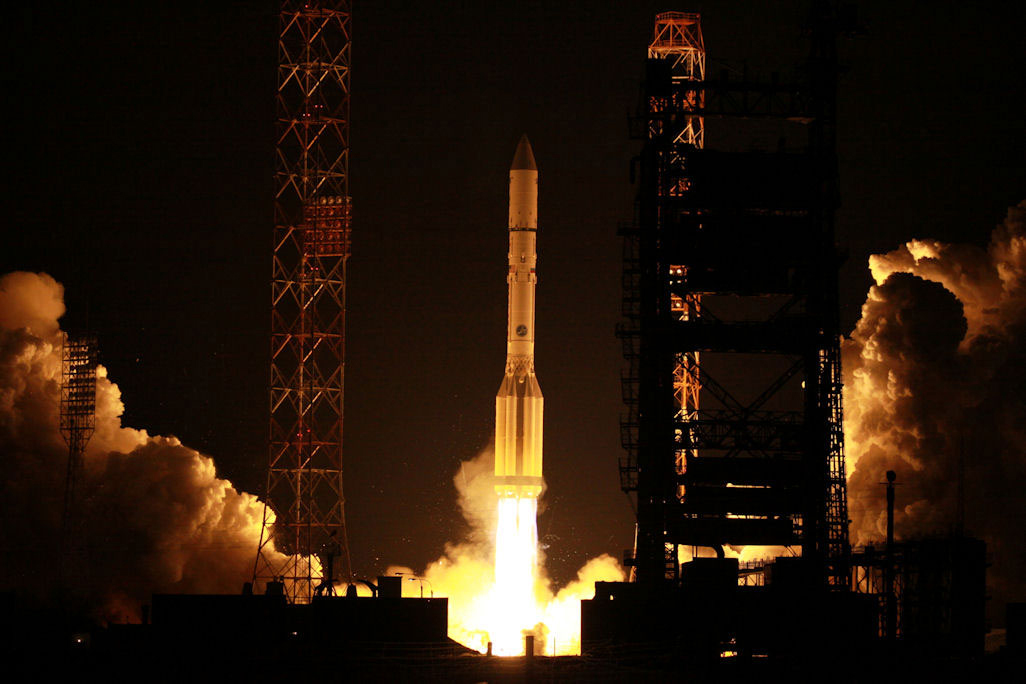Russian Rocket Launches Long-Delayed Communications Satellite

PARIS — An International Launch Services (ILS) Proton rocket on Feb. 15 successfully placed the large SES-4 satellite into geostationary transfer orbit in a launch that had been delayed by nearly three months following a Proton failure in August and two subsequent launcher-related delays, ILS and satellite fleet operator SES announced.
Weighing 13,624 pounds (6,180 kilograms) and carrying 52 C-band and 72 Ku-band transponders, SES-4 will be the biggest satellite in Luxembourg-based SES’s 50-satellite fleet. The satellite launched at 1:36 a.m. local time, lighting up the pre-dawn sky.
The SES-4 satellite will operate at 22 degrees west longitude, over the Atlantic Ocean, to replace existing SES capacity there and to add new coverage of North and South America, Europe and Africa.
SES-4 is also equipped with four regional Ku-band spot beams to focus capacity on Europe, the Middle East, West Africa and the Americas, SES said. The satellite, built by Space Systems/Loral of Palo Alto, Calif., is designed to provide 20 kilowatts of power to its payload at the end of a scheduled 15-year service life.
Operating from Russia’s Baikonur Cosmodrome in Kazakhstan, the Proton rocket and its Breeze M upper stage placed SES-4 into its intended transfer orbit nine hours and 12 minutes after liftoff.
SES, which is in the middle of its biggest satellite replacement and expansion program, said its next launch will occur by June, when the SES-5 satellite is scheduled to be placed into orbit, also by an ILS Proton vehicle.
This article was provided by Space News, dedicated to covering all aspects of the space industry.
Get the Space.com Newsletter
Breaking space news, the latest updates on rocket launches, skywatching events and more!
Join our Space Forums to keep talking space on the latest missions, night sky and more! And if you have a news tip, correction or comment, let us know at: community@space.com.

Charles Q. Choi is a contributing writer for Space.com and Live Science. He covers all things human origins and astronomy as well as physics, animals and general science topics. Charles has a Master of Arts degree from the University of Missouri-Columbia, School of Journalism and a Bachelor of Arts degree from the University of South Florida. Charles has visited every continent on Earth, drinking rancid yak butter tea in Lhasa, snorkeling with sea lions in the Galapagos and even climbing an iceberg in Antarctica. Visit him at http://www.sciwriter.us
